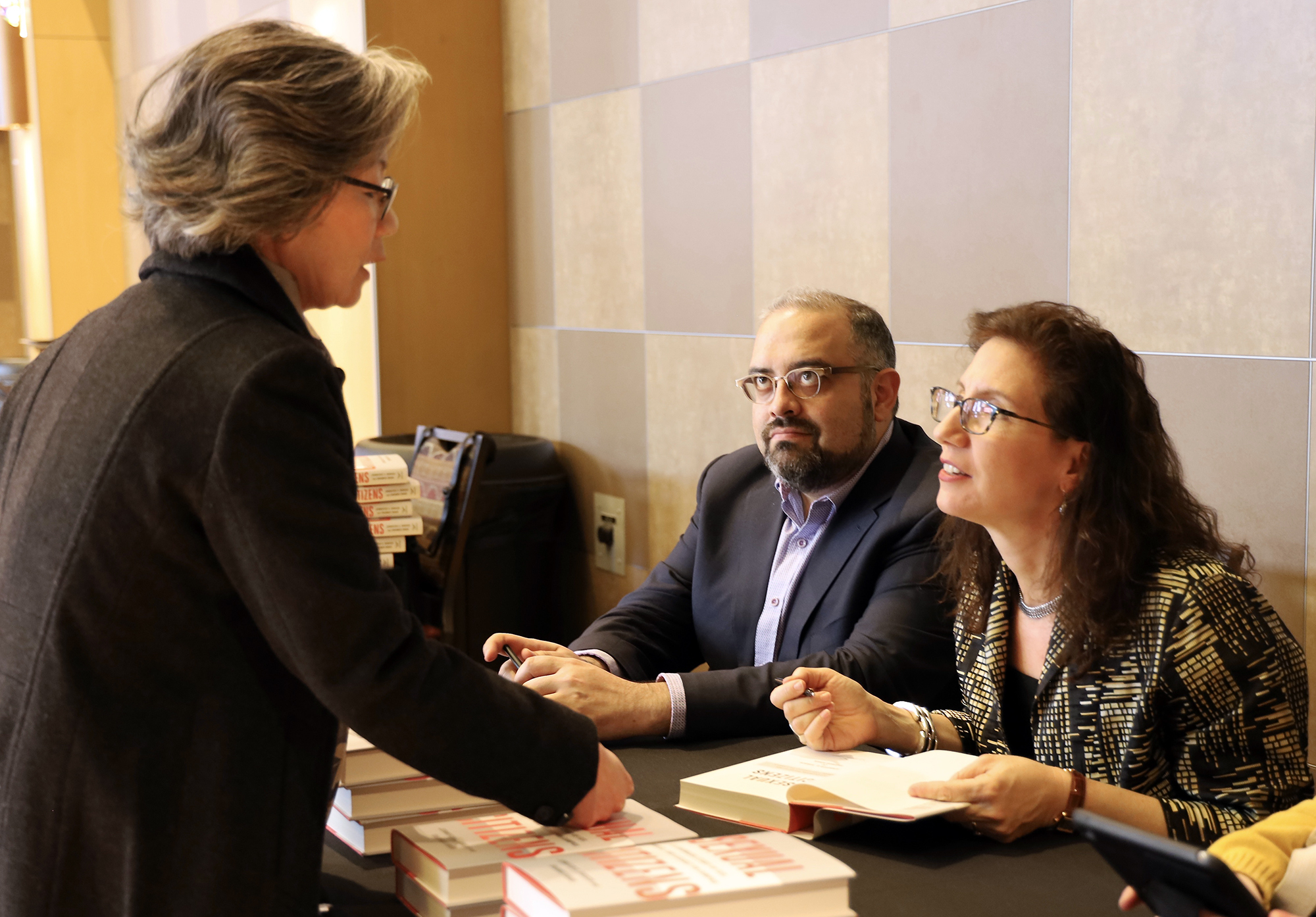Campus sexual assault as a public health challenge

Columbia University Professors Jennifer S. Hirsch and Shamus Khan visited Ohio State last month to discuss the social roots of campus sexual assault, why it’s such a common feature of college life and what might be done to prevent it.
The topic is the focus of their newly published book, Sexual Citizens: A Landmark Study of Sex, Power and Assault on Campus.
Sexual Citizens looks at campus sexual assault through a public health lens, drawing on one of the most comprehensive studies of sexual assault on campus to date, led out of Columbia University, where Hirsch serves as a professor of sociomedical sciences at the Mailman School of Public Health, and Khan is professor and chair of the Department of Sociology.
In their discussion at Ohio State — moderated by radio host Ann Fisher of WOSU Public Media — Hirsch and Khan emphasized the importance of improving public education about sex, creating safe spaces for people to talk about sexual encounters, moving beyond the idea of taking on this challenge “one accusation at a time” and developing population-level solutions that address inequalities.
“Sexual assault is not one thing. It’s lots of different kinds of experiences that different communities are experiencing for different reasons,” Khan said. “To address it, we’re going to have to think about a multisectoral approach — ways in which we develop multiple targeted policies that seek to prevent sexual assault from happening.”
Sexual assault is particularly pervasive on college campuses, with more than 11% of all graduate and undergraduate students experiencing rape or sexual assault before graduation, including 23% of undergraduate women, according to the Rape, Abuse and Incest National Network.
“A main message we present in the book is that we can’t reach herd immunity in sexual assault prevention without making sure that everyone has access to sex ed,” Hirsch said, citing her research that found women whose sexual education before college included skills-building in refusing sex were half as likely to be raped in college. “That is as effective as the flu shot.”
Hirsch said her hope is that Sexual Citizens will reframe how people think about the problem —including understanding that families, communities, religious institutions, youth-serving organizations and K-12 schools all have a role to play in preparing young people to become sexually active without harming others.
“Our job in public health is to build a world in which people can thrive,” she said.
About The Ohio State University College of Public Health
The Ohio State University College of Public Health is a leader in educating students, creating new knowledge through research, and improving the livelihoods and well-being of people in Ohio and beyond. The College's divisions include biostatistics, environmental health sciences, epidemiology, health behavior and health promotion, and health services management and policy. It is ranked 22nd among all colleges and programs of public health in the nation, and first in Ohio, by U.S. News and World Report. Its specialty programs are also considered among the best in the country. The MHA program is ranked 5th and the health policy and management specialty is ranked 21st.